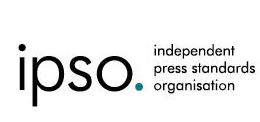
(Credit: IPSO, screenshot)
It was a cautionary tale when news outlet employees published photos and information lifted from social media accounts to illustrate stories but had no idea if that action was OK. In recent years, readers have complained to the UK press regulator the Independent Press Standards Organisation (IPSO) about news stories including information or photos from their Facebook or Instagram accounts and IPSO has had to examine the matter.
IPSO has now entered the fray in an effort to prevent such ethical questions from happening in the first place. The new advice for news outlets publishing photos or information found on social media was published this week.
IPSO listed a series of questions journalists and editors should consider before publication of anything from social media. iMediaEthics summarized ten of the key questions.
- Who posted the information on social media? Was it a minor?
- Does it show anything relating to a child?
- What privacy settings are on the post?
- Does the post relate to medical information or children?
- Who posted the information?
- How many people could have seen the post?
- Would the information embarrass the person?
- Is it in the public interest?
- Is the publication sensitive or invasive?
- Is it accurate?
The new guidance is published here. iMediaEthics asked IPSO to ask what prompted the guidance. An IPSO spokesperson told iMediaEthics by e-mail, “The decision to work on this piece of guidance was prompted mainly by the number of enquiries we receive, on a weekly basis from both journalists and members of the public, on this specific issue.”
IPSO recommended journalists take a screenshot to show if the information was publicly available or behind privacy settings, documenting why the information was published, and pixellating anyone from a photo who is not “relevant to the story.” Journalists can’t use subterfuge to get information from social media unless it is “‘in the public interest” and “cannot be obtained by other means.”
Just because information is visible on social media doesn’t mean it’s fair game to be published, IPSO notes. Further, IPSO suggested journalists use their judgement to determine how widely shared the information was before the news outlet found it and if the person has publicly discussed similar matters previously.
The UK press regulator IPSO regulates approximately 2,500 UK newspapers and magazines, and can investigate and require member publications to publish corrections or rulings. Anyone can complain to IPSO about any member publication possibly breaking IPSO’s Editors’ Code of Practice within four months of an article’s publication. To submit a complaint about any IPSO member, go here to the IPSO website. Other press regulators and councils operate under their own rules.







Congratulations on achieving this goal UK . From a country ( Sri Lanka) where media ethics are nothing but a well typed document , i see this set of questios as a ground breaking attempt.